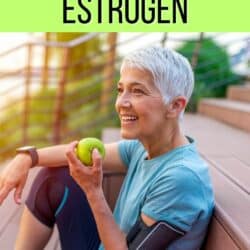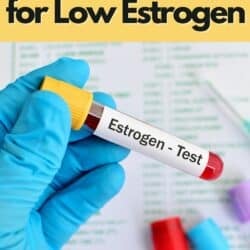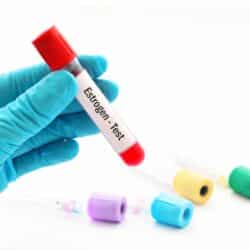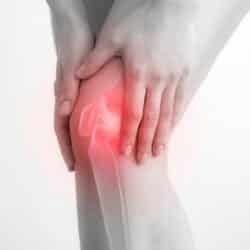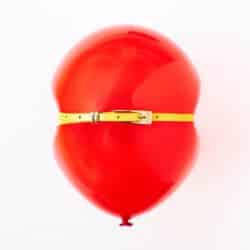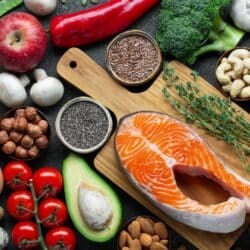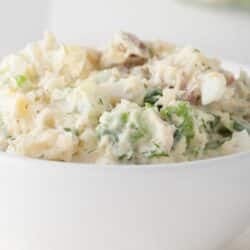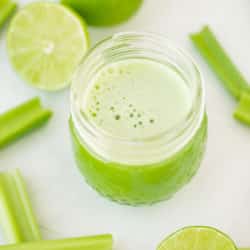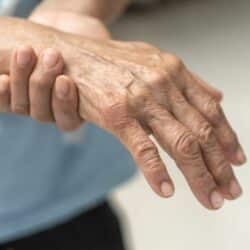10 Best Supplements for Low Estrogen (Proven by Science)
Low estrogen in women can occur due to a variety of factors, including perimenopause and menopause. The symptoms can lead to hot flashes and low libido. In this post, I share the ten best supplements that can help increase low estrogen naturally.

Understanding Women’s Hormonal Changes
Role of estrogen
Estrogen is an important one of the sex hormones associated with the development of the female reproductive organs and sexual characteristics.
Men produce estrogen, too, but women produce a lot more.
It plays a key role during puberty in girls, supporting their sexual development. It also regulates the growth of the lining of the uterus throughout the menstrual cycle and at the start of pregnancy.
It even has effects on the heart, blood vessels, bones, skin, hair, mucous membranes, and the brain.
With estrogen influencing so many processes throughout the body, any hormonal imbalance can cause quite a wide range of symptoms.
High estrogen or poor estrogen metabolism can also cause issues including an increased risk of breast cancer.
Why estrogen drops
But just why do our hormone levels change?
To a certain extent, fluctuations in our estrogen levels are a normal part of life, with these changes heavily associated with the menstrual cycle.
But when estrogen levels drop – and remain low – it is important to determine why.
A common cause is the onset of perimenopause or menopause when your menstrual cycle slows and eventually stops. At this point, your ovaries stop making estrogen and your fat cells begin producing the majority of it instead.
Injury to the ovaries, or removal – as part of cancer surgery, for example – can also lead to low levels of estrogen.
But there are other, less obvious causes of hormone imbalance. These include:
- Autoimmune diseases
- Eating disorders, which leave your body lacking the nutrients it requires to regulate your hormonal balance
- Genetic conditions like Fragile X syndrome and Turner syndrome
- Stress, particularly the kind caused by excessive exercise
- Chronic kidney disease
- Poor functioning of the pituitary gland
Symptoms of Low Estrogen
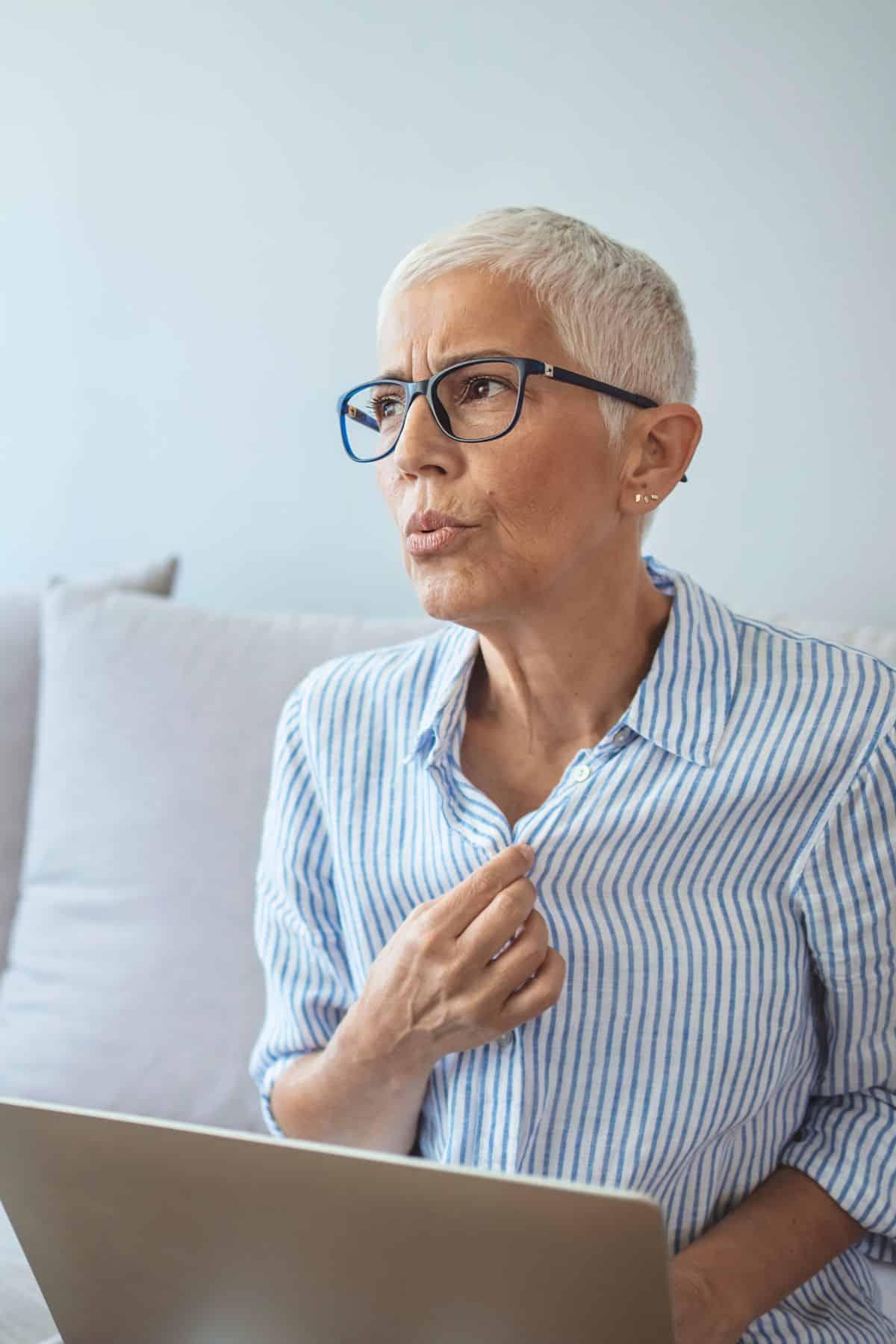
Low estrogen can affect your body in a variety of ways.
In younger women, it can lead to a delay in puberty and sexual development. In older women, it tends to cause the symptoms typically associated with menopause.
These symptoms of low estrogen or estrogen deficiency include:
- Irregular menstrual cycle or no periods
- Night sweats and hot flashes
- Loss of libido
- Painful intercourse
- Vaginal dryness
- Breast tenderness
- Bone loss or poor bone health
- Difficulty in concentrating
- Low mood, mood swings, and irritability
- Insomnia
- Fatigue
- Weight gain
Because estrogen helps slow the natural breakdown of bone, it is also important in preventing osteoporosis. That’s why people who are low in estrogen are likely to experience decreased bone density, resulting in fractures or breaks.
If you get a bone density scan or do a blood test for bone turnover markets, you may notice a decrease in bone density when estrogen drops after menopause.
Supplements to Increase Estrogen Naturally
These herbal supplements and natural remedies may help boost your estrogen levels, especially after menopause. All of these have scientific research to support their use.
Postmenopausal women may want to try these natural ways to increase estrogen production and relieve menopause symptoms.
As always, though, please speak to your healthcare provider to make sure these are appropriate for you and there are no interactions with any other herbs or medications you may be taking.
1. Black Cohosh
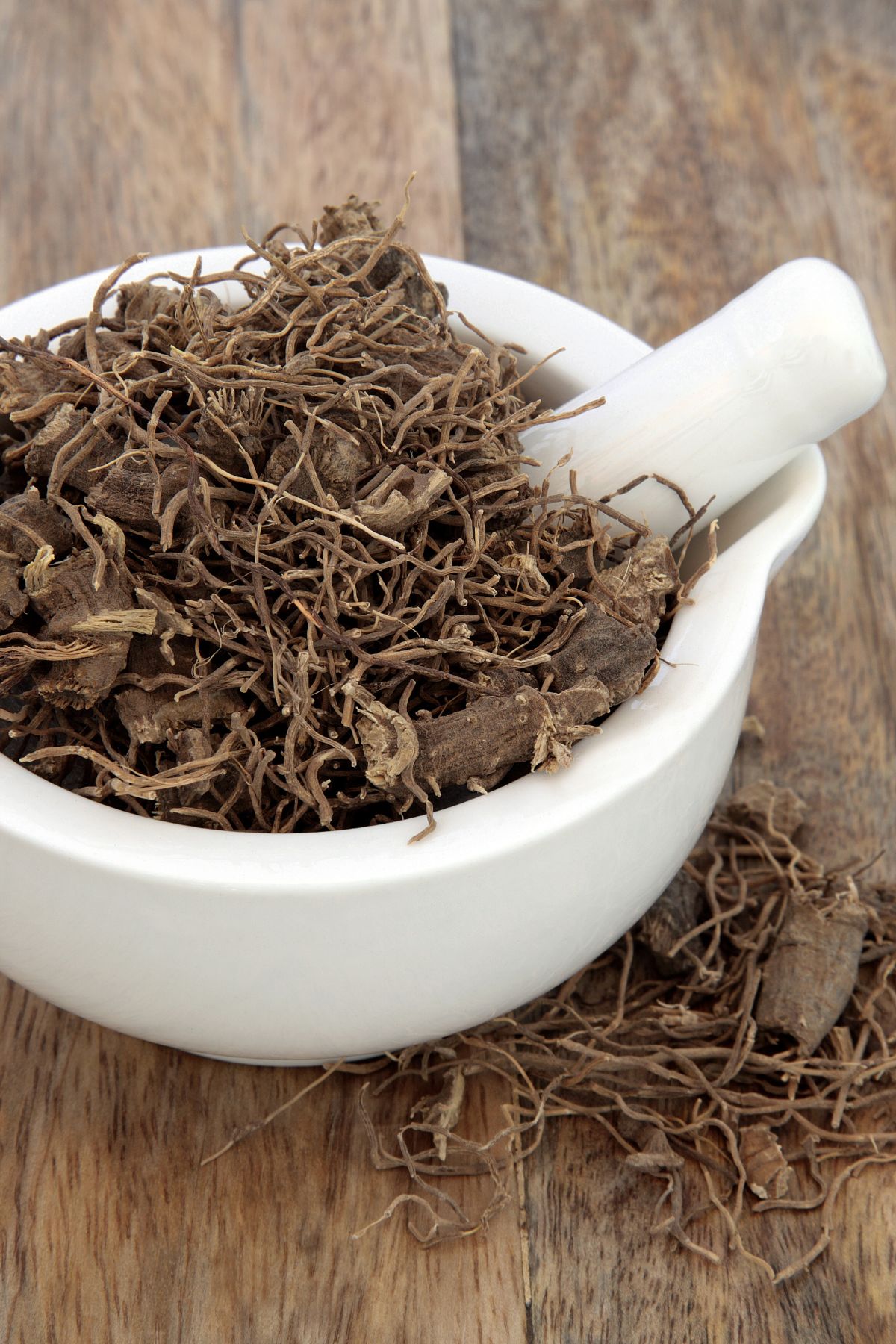
A traditional Native American herb, black cohosh has been used for medicinal purposes for many years. It is particularly popular for treating symptoms related to menstruation and menopause.
This is because it contains phytoestrogens – estrogen-like compounds that come from plants. Their effects on the body are not as significant as those produced by pure estrogen, but they may still be useful for people whose estrogen levels are low.
Indeed, researchers have found that black cohosh can be helpful in relieving the typical symptoms of menopause and can also help protect against osteoporosis.
There is also research showing that it contains compounds that can stimulate estrogen receptors. Despite this, the authors of the study concluded that there isn’t yet enough evidence for black cohosh to be routinely recommended as a treatment for menopausal symptoms.
Black cohosh is available as capsules, tablets, or a liquid tincture. You can also buy the dried root to make tea.
2. Red Clover
This wild flowering plant – related to peas and beans – has been used in traditional medicine for years to treat a range of conditions.
Just like black cohosh, red clover is a source of phytoestrogens that mimic the effects of estrogen in the body.
Although further trials are needed to confirm their findings, experts have discovered that red clover supplements can significantly boost estrogen levels and help reduce hot flashes.
There is also some evidence that they may help reduce postmenopausal anxiety and depression.
But much of the evidence for the effectiveness of red clover is anecdotal and many studies have found it no better than a placebo in alleviating symptoms.
Hopefully, clinical trials will continue so that its true value in addressing low estrogen can be assessed.
Like black cohosh, you can buy red clover in capsule form, or as a tablet, or liquid tincture. You can also use it to make tea.
3. Dong Quai
Also known as Chinese angelica, dong quai is the dried root of a plant called Angelica sinensis, which is related to celery, carrots, and parsley.
It has been used in traditional Chinese medicine for more than 2000 years. In fact, its ability to help treat menopausal symptoms like night sweats, hot flashes, and vaginal dryness has earned it the nickname “female ginseng”.
It is another source of phytoestrogens, with researchers identifying two possible compounds that seem to have estrogenic effects on the body.
This study, meanwhile, found that a herbal mix containing dong quai increased the production of estrogen receptors in rats, enhancing the body’s response to estrogen. However, since a mixture of herbs was used, it’s impossible to be sure that dong quai was totally responsible for the benefits.
Nevertheless, separate research has revealed that dong quai may have anti-depressant effects, too, making it useful in treating menopausal symptoms.
4. Maca
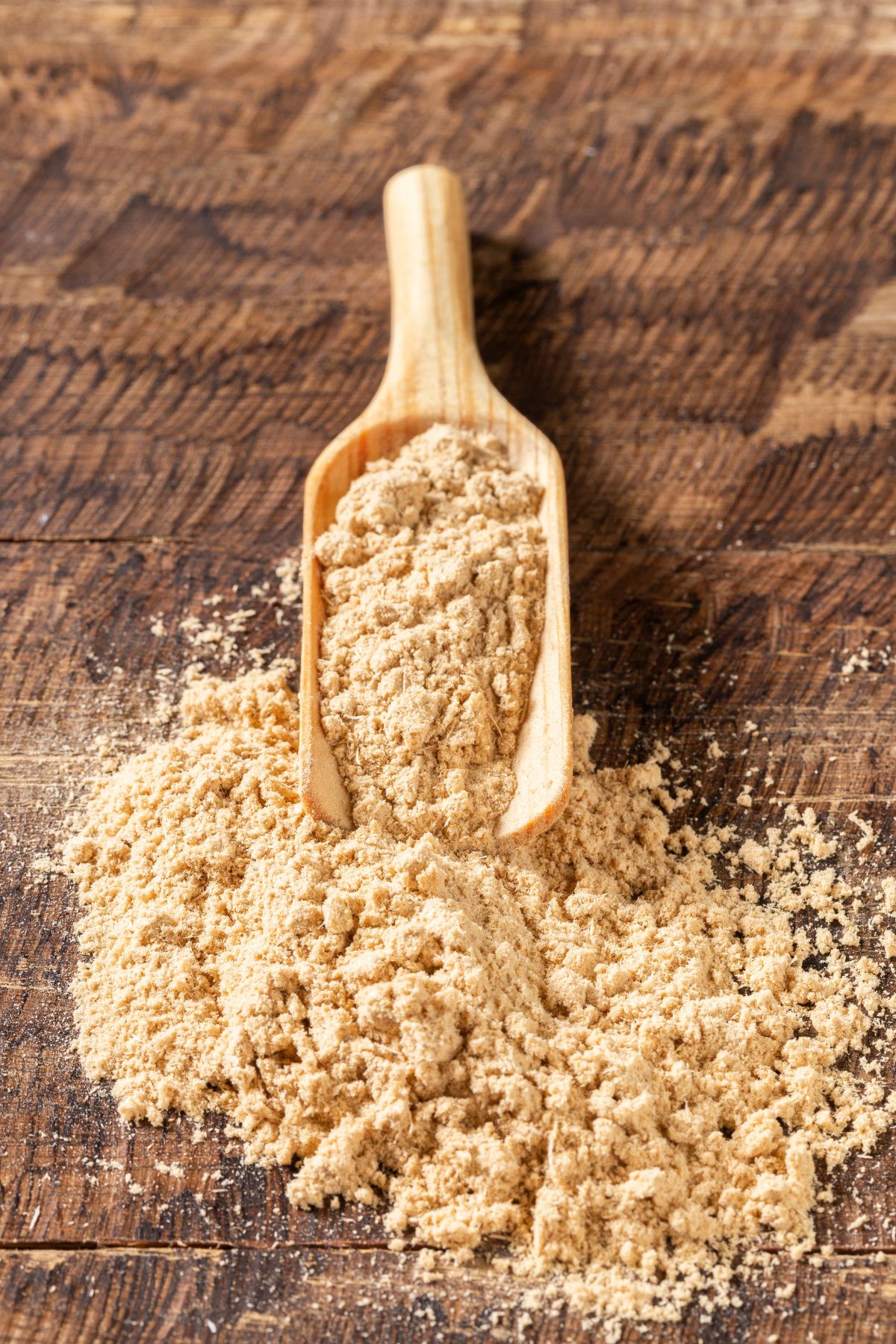
Maca root comes from a cruciferous vegetable native to Peru. It has been found to provide all sorts of benefits, from preventing diseases and guarding against osteoporosis to boosting mood and even treating certain tumors.
Along with a wide range of valuable nutrients, it also contains plant sterols that have estrogen-like effects on the body.
A four-month study on menopausal women found that maca has the potential to improve hormonal balance and relieve bothersome symptoms like night sweats and hot flashes.
There is also evidence that it can give your libido and sexual function a boost. This can be especially useful if your sex drive has suffered as a result of long-term medication for depression.
Some people like to take maca in powder form, either by itself or by mixing it with other foods. It can also be taken in capsule form.
Or, try making my Maca Coffee recipe.
5. Flaxseed
Flaxseeds are rich in phytoestrogens, particularly lignans. These have mild estrogenic effects on the body.
There have been several studies demonstrating just how useful flaxseed consumption can be for menopausal women.
One study found that ground flaxseeds could be as useful as hormone replacement therapy in improving menopausal symptoms.
Later research also found that flaxseeds might be more powerful than soy in increasing estrogen levels.
More recent research, meanwhile, found that women who consumed flaxseeds for 3 months reported a reduction in their menopausal symptoms and a better quality of life overall.
The best way to use flaxseeds is to grind them because the majority of the valuable lignans are concentrated in the outer shell.
You can add ground flaxseeds to everything from smoothies and oatmeal to yogurts and salads. You can also add them to your baked goods (try adding a tablespoon of ground flax seeds to muffins, for example).
6. Vitamin D
When estrogen levels are low, vitamin D supplementation is often recommended.
But why is that?
Well, scientists have found that there is a positive correlation between the amount of vitamin D in the body and levels of estradiol – the strongest form of estrogen.
That means that when vitamin D levels are low, estrogen levels tend to be low, too.
Your body is able to make its own vitamin D in the skin following exposure to the sun (hence its nickname “the sunshine vitamin”).
But while this is the most effective way for the body to obtain vitamin D, it is problematic. For people who live in parts of the world where there is little sunlight – or for those with certain medical conditions – getting enough vitamin D isn’t always easy.
It is available in certain foods – namely fatty fish, mushrooms, egg yolks, and fortified foods – but vitamin D supplements are often the best option for maintaining healthy levels.
7. Omega-3 Fatty Acids
Omega-3 fatty acids – found in oily fish and fish oil supplements, along with flaxseeds and many types of beans – also contain lignans, which are phytoestrogens with estrogen-like effects in the body.
Because of their role in keeping the hormones balanced, experts have found them useful in preventing menopausal problems, reducing the frequency of hot flashes, and improving the quality of life among middle-aged women. They can also help prevent postmenopausal osteoporosis.
There’s evidence that – when combined with vitamin D3 – omega 3 fatty acids can boost estrogen levels.
Further studies, meanwhile, have looked at the effect of estrogen on the brain.
Experts discovered that the production of estrogen in the brain is directly related to the presence of docosahexaenoic acid (DHA), an omega-3 fatty acid that’s abundant in fish oil supplements.
8. Magnesium

Magnesium is sometimes neglected as a supplement to help restore hormonal health, but studies have shown that this mineral is essential for several reasons.
First, it can help regulate your circadian rhythm – the cycles of your body’s internal clock. People who are low in magnesium tend to suffer from poor sleep, a particular problem for women transitioning through menopause.
Magnesium also activates vitamin D – another important nutrient for maintaining healthy levels of estrogen – and regulates the HPA (hypothalamic-pituitary-adrenal) axis, the system that controls stress.
Magnesium supplements come in a variety of forms, so it’s important to speak to a healthcare professional to determine the best form for you.
I have an introduction to magnesium supplements that might be helpful as well.
9. Vitamin E
Vitamin E is an antioxidant, which means that it can stop “free radicals” from damaging the cells in your body.
It has been shown to ease stress – an important part of maintaining healthy estrogen levels – and can be useful in reducing the risk of depression.
It also contains phytoestrogens and has been shown to be helpful in reducing hot flashes and preventing unwelcome vaginal changes during menopause.
Wheat germ is a great source of vitamin E, as are almonds and hazelnuts. You can also take it in drops or capsules as a supplement.
10. Ginseng

Ginseng is perhaps one of the most well-known supplements for restoring hormonal balance.
Science has shown that Korean red ginseng – also known as Asian ginseng, Chinese ginseng, or Panax ginseng – can indeed be beneficial for post-menopausal women.
Experts found that it helps relieve menopausal symptoms and that it also helps protect the heart after menopause.
It’s important to note that these effects were only noted for red ginseng, which contains phytoestrogens and other components that are not present in raw white ginseng.
A bonus with Panax ginseng is that it is also considered an adaptogen – a substance that helps your body manage stress and restore balance. Managing stress is an important part of maintaining healthy estrogen levels.
FAQs
You may begin to notice your symptoms improving over time, or your healthcare provider may test your estrogen levels. These can be tested by using a sample of either your blood or your urine. There are also “at-home” tests. See how to order your own lab tests online.
There certainly are, and ensuring that your lifestyle is as healthy as possible can help bring balance to your body.
Here are some practical and natural steps you can take to improve your estrogen levels:
Exercise in moderation, in a way that you enjoy. This has multiple benefits, as it can help control your weight, reduce stress, and help you sleep more soundly at night. See my favorite exercises for chronic disease.
Ensure that you are enjoying a well-balanced, nutritious diet. Don’t be tempted into drastically cutting calories, as a healthy body weight is essential. Instead, focus on wholesome ingredients and avoid processed foods.
Learn techniques to manage your stress and incorporate these into your daily routine. Chronic stress has known health risks and can throw off hormone balance and lead to irregular periods and other issues with the reproductive system.
Make sure you get the sleep you need. Avoid screens and other distractions before bed and try to stick to the same waking and sleeping schedule each day.
Soy is one of the richest dietary sources of isoflavones. These are compounds that act like phytoestrogens once they’ve been ingested and metabolized, meaning that soy can have mild estrogenic effects on the body.
Research has shown that soy may help improve estrogen levels in menopausal women, helping ease symptoms.
To increase your dietary intake of soy, you can cook soybeans to serve with your main meal or use soy-based ingredients like tofu or tempeh in place of meat in your recipes.
This is worth discussing with your healthcare provider! There is more and more research being published about the pros and cons of hormone replacement therapy for women during menopause, and possibly even before during perimenopause.
More Hormone Balancing Resources
Conclusions
If your doctor has confirmed that your estrogen levels are low, taking the supplements listed here can help relieve your symptoms. Just remember that some supplements may react with other medications, so it’s important to discuss which one to take with your medical provider.
Taking the right supplement – along with enjoying a nutritious diet and healthy lifestyle – are simple and achievable ways to restore your hormonal balance and get back to feeling great!
Don’t forget to join my newsletter list to get exclusive clean eating recipes and tips. The newsletter is 100% free with no spam; unsubscribe anytime.
About the Author: Carrie Forrest has a master’s degree in public health with a specialty in nutrition. She is a top wellness and food blogger with over 5 million annual visitors to her site. Carrie has an incredible story of recovery from chronic illness and is passionate about helping other women transform their health. Send Carrie a message through her contact form.
Note: this post is for informational purposes only and is not intended as medical advice. Please consult your healthcare provider for recommendations related to your individual situation.


